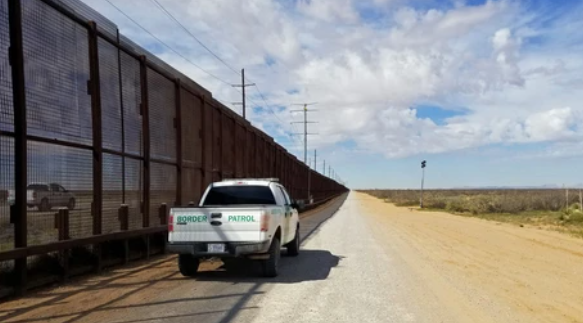
Assists law enforcement agencies by offsetting agency-incurred travel costs for sending peace officers to Advanced Law Enforcement Rapid Response
Training (ALERRT) training.



Assists law enforcement agencies by offsetting agency-incurred travel costs for sending peace officers to Advanced Law Enforcement Rapid Response
Training (ALERRT) training.

Supports municipal police departments and county sheriffs’ offices in establishing or enhancing body-worn camera programs.

Provides funding to support prosecution resources and training as part of a collaborative initiative of district and county attorney offices within the Texas border region handling an increased number of cases resulting from border-related offenses.

Provides funding to professional fire departments in the border region to assist in the acquisition of specialized equipment, maintenance, and medical supplies to support emergency services associated with the execution of security activities that deter crime in the border region.

Provides funding to law enforcement agencies to equip peace officers with bullet-resistant shields.

Provides funding for law enforcement agencies to equip peace officers with rifle-resistant body armor.

Fills services gaps for sexually exploited children by promoting regional and statewide programs that exemplify standards for trauma-informed care.

Provides financial assistance to counties for essential public services including law enforcement services, jail services, court services, or reimbursement of extraordinary costs incurred for the investigation or prosecution of a capital murder or crimes committed because of bias or prejudice as defined in Article 104.004 of the Code of Criminal Procedure.

Provides funding to support, expand, and fund local certified Texas Crime Stoppers organizations that help protect our communities.

Fills gaps throughout all areas of the criminal justice system and supports innovative concepts and best practices to achieve a safer Texas for all citizens.

Promotes public safety efforts, crime reduction, and system improvements.

Provides funding to improve emergency management and preparedness capabilities by supporting flexible, sustainable, secure, strategically located, and fully interoperable EOCs with a focus on addressing identified deficiencies and needs. Fully capable emergency operations facilities at the state and local levels are an essential element of a comprehensive national emergency management system and are necessary to ensure continuity of operations and continuity of government in major disasters or emergencies caused by any hazard. Among the five basic homeland security missions noted in the DHS Strategic Plan, the EOC Grant Program supports the goal to Strengthen National Preparedness and Resilience.

Provides funding for services and assistance directly to peace officers and first responders to address direct and indirect trauma that occurs in the course of their normal duties either as the result of the commission of crimes by other persons or in response to an emergency.

Provides funding to reimburse district attorneys for costs associated with the testing of forensic evidence.

Supports investigation of internet crimes against children through task forces made up of multi-agency law enforcement personnel throughout urban Texas cities.

Provides funding for overtime and operating costs to sustain interagency law enforcement operations and support an increased law enforcement presence to detect, deter, and disrupt drug, human, and other contraband trafficking created by the close proximity to the Texas/Mexico border.

Provides funding for target hardening and other physical security enhancements/activities to nonprofit organizations that are at high risk of a terrorist attack.

Provides funding to enhance interagency border security operations supporting Operation Lone Star including funding to help deter and interdict criminal activity related to the border crisis.

Supports enhanced cooperation and coordination among federal, state, local, and tribal law enforcement agencies to secure the Texas/Mexico and international water borders.

Provides funding for projects that improve the quality and timeliness of forensic science or medical examiners services as well as projects seeking to address emerging forensic science. Specific funding has been reserved for projects that support responses to the opioid epidemic.

Supports programs that foster safer neighborhoods through a sustained reduction in violent crime, including, but not limited to, addressing criminal gangs and the felonious possession and use of firearms.

Provides substance abuse treatment for incarcerated offenders.

Provides funding to hospital facilities seeking to achieve or maintain a Sexual Assault Forensic Exam (SAFE)-Ready designation, as well as non-profit corporations seeking to operate or maintain a SAFE Program as defined in Chapter 323 of the Texas Health and Safety Code.

Supports temporary or long-term expansions of testing capacity in crime laboratories to reduce the backlog of sexual assault kits in Texas.

Supports rape crisis centers that provide core services to victims of sexual assault.

Supports specialty court programs as defined in Chapters 121 through 129 of the Texas Government Code that focus on treatment for those with substance abuse or mental health issues or the specific needs of Veterans or sexually exploited persons.

Assists local governments with managing and reducing systemic cyber risk. Program objectives include:

Provides funding for strategies aimed at the prevention, intervention, and reduction of crime and violence in Texas and to provide essential services to at-risk populations within our communities.

Supports state and local efforts to prevent terrorism and targeted violence and prepare for the threats and hazards that pose the greatest risk to the security of Texas citizens. Provides funding to implement investments that build, sustain, and deliver the 32 core capabilities
essential to achieving a secure and resilient state.

Supports state and regional efforts to improve or sustain interoperable emergency radio infrastructure.

Provides funding for projects that promote a coordinated, multi-disciplinary approach to improve the justice system’s response to violent crimes against women, including domestic violence, sexual assault, dating violence, and stalking.

Supports targeted, regional approaches to combat gang violence by coordinating prevention, intervention, and suppression activities.

Supports school districts and local governments by providing case management and support to truant school children.

Supports state and local efforts to prevent terrorism and other catastrophic events and prepare for the threats and hazards that pose the greatest risk to the security of Texas citizens. PSO provides funding to implement investments that build, sustain, and deliver the 32 core capabilities essential to achieving a secure and resilient state.
Assists high-threat, high-density Urban Areas in efforts to build and sustain the capabilities necessary to prevent, protect against, mitigate, respond to, and recover from acts of terrorism. All investments must be consistent with capability targets set during the Threat and Hazard Identification and Risk Assessment (THIRA) process, and gaps identified in the Stakeholder Preparedness Review (SPR).

Devotes resources to provide services and assistance directly to victims of crime to speed their recovery and aid them through the criminal justice process.
Services may include the following:
